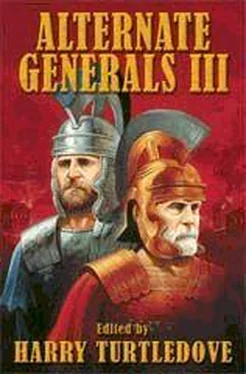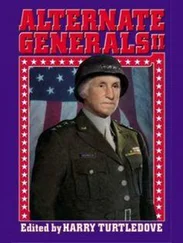The caravan came on slowly. It was not a particularly large undertaking by the standard of the Middle Kingdom, but it was not particularly small. It was well guarded, in keeping with its size, but Moishe would not have called its guards an army. The parts of that would not come in, if they existed at all, until the caravan was firmly established in the Temple.
Moishe effaced himself among the clerks and servants who escorted the chief architect. His gown was plain, his marks of rank unobtrusive: a silver button on his hat, a silken prayer shawl under his gown. He stood in Abraham Han Li's resplendent shadow and watched as the caravan approached.
His eyes were not on the nobly bearded men who rode on handsomely caparisoned mules, or even on the armed guards who flanked them, but on those who, like him, chose not to put themselves forward. They were in the second rank, even the third and fourth, and their coats were worn and their faces showed the ravages of care and cleverness. He was careful not to meet their eyes.
The chief of the embassy had the noblest beard of all, a cascade of white down his breast. His voice matched it: rich, rolling, made to carry through the sanctuary of a temple. He spoke Hebrew in an accent so pure that Moishe sighed in spite of himself.
Abraham Han Li appeared untainted by either envy or admiration. He answered the elegant phrases of greeting with phrases equally elegant if not nearly so perfectly accented. He presented each of his fellow notables by name and rank and position, at leisure and at length. That obligated the western rabbi to do the same, though the mules were fretting and the camels braying and the men looking strained about the eyes.
His name was Ephraim of a place with a barbarous name, like the grunt of a pig: York, which Moishe understood to be beyond the edge of the world. He had brought a good number of his cousins and relations from a number of places nearly as distant and nearly as outlandish. Moishe had heard of Salamanca and of Prague, but the rest were strange.
While Ephraim spoke, Moishe's eye found one whom he named all but last and apparently least: Barak, likewise of York. He was a big man, and young, and although he carried no weapon, he stood as if he were accustomed to a sword at the hip. His eyes were never still. They scanned the faces in front of him, pausing, measuring, flicking onward.
This was a mind that could conceive a wild and improbable plan. Moishe could see it in those quick eyes, that light and wary stance. If the man was a scholar, he was a remarkably martial and suspicious one. Moishe did his utmost to seem harmless and inconsequential, and not to draw Barak's attention.
Maybe he succeeded. If not, he would learn soon enough. By the time the introductions had wound to their interminable end, he had set a trusted clerk in his place and escaped to signal the guards and servants that the guests were coming in. The cooks were waiting, the feast of welcome prepared according to the strictest prescriptions of the Law. Not one compromise, not one variation-that was the order. Moishe made sure that they had been scrupulous in carrying it out.
* * *
Once the caravan was in and settled and placed under discreet watch, a sort of quiet descended. The guests were not obtrusive. They asked to see the Temple, but they said little, and nothing that was not complimentary. Several of the scholars expressed a desire to visit the school; they observed in silence, neither smiling nor frowning, and for the most part even the students forgot they were there.
The first crack in the calm came on the Sabbath, which fell on the fifth day after the westerners' arrival. Workmen had come in that morning to lay the paving for the sixth court. The tiles for it had arrived the day before, and the men were eager to begin.
Moishe was just finishing his inspection of the workmen, briefly but happily delayed by a messenger with news that the caravan he had been awaiting most eagerly, the great one that the Khan had sent with gold and treasures, would come within sight of Chengdu by evening. He was in an excellent humor, therefore, and when he saw the cluster of men in western clothes standing on the rim of the court, he nodded and smiled.
They did not return the smile. There were half a dozen of them; all the westerners looked alike, but Moishe thought these might be the same scholars who had been attending classes in the school.
The oldest of them, whose beard was shot with gray, glowered at Moishe under his heavy brows. Nonetheless it was not he who spoke but the man beside him, whom Moishe recognized as the man from the gate: Barak, the big man who looked more like a soldier than a scholar. Moishe had thought then that he was more than he chose to seem. The thought came back to him now as Barak asked, "You allow your men to labor on the Sabbath?"
Moishe's heart contracted. He did not know why it should do that. The man's voice was mild and he was unarmed. But there was an undertone, like a low growl. "It is for the glory of the Lord God," Moishe said.
"The Lord bade us remember the Sabbath, that He has made holy," Barak said.
"Indeed," said Moishe, "and what is more holy than the Temple that He has asked us to build?"
"Not on His Sabbath," said Barak.
The man had no humor, and no flexibility, either. Moishe mustered a smile, bowed as if in submission, and said humbly, "That may be. I am only a simple servant. Shall I present your complaint to the Khan's chief architect?"
"It is not a complaint," said the eldest of the westerners. "It is a statement of truth. You desecrate this Temple with the breaking of the Sabbath."
"Such strong words," Moishe said. "I shall speak to my master. Now come. Come and pray."
"How can we pray while men labor in the very Temple?" Barak demanded.
"Pray for us, then," said Moishe a little too sweetly.
"That, we can do," Barak said with no more humor than he had ever shown.
* * *
That was the first sign of trouble. The second followed all too quickly. Moishe had managed to divert the westerners from the horror of Sabbath-breaking, then after prayer they were invited to dine with the high priest. That should be a quiet and decorous gathering, and suitably scrupulous in its observance of the Law.
He had reckoned without a pack of young would-be scholars, a day of idleness, and rather more boredom than was good for any of them. Almost he had yielded to temptation and taken his supper in his room, but that indulgence must wait for a more peaceful time. He was hungry, he discovered, even under the cold eye of the westerner who sat nearest-not one of those who had been exploring the temple, but by now they had all heard of his offense in the face of the Lord.
He had just finished a quite delectable dish of cold roast fowl and reached for his bowl of noodles when something small and fast burst through the door to the kitchens. Several larger figures ran in hot pursuit. The quarry was silent except for an occasional grunt, but the pursuers were squealing as if they and not the pursued were the pigs.
Prince Subotai led the pack. The piglet led them a wild chase, darting under tables, veering around legs, then in a feat truly remarkable for a pig, hurdled a portly westerner, caromed off the elder beside him, and skidded down the table in a spray of food, drink, and shattered crockery. It came to an abrupt halt in the lap of the chief of the embassy, and crouched there, gaping up as he gaped down. Their expressions were perfectly matched.
Moishe did not want to laugh. Nor, he was sure, did any of the other easterners who were in the hall. He succeeded-somewhat-in restraining himself, but others were not so fortunate. The hall erupted in a roar of mirth.
* * *
"Even if it had been a calf," Moishe said, "or a foal, or even a dog, there might have been some way to repair the insult. But a pig-Lord of Hosts, could anything have been worse?"
Читать дальше












